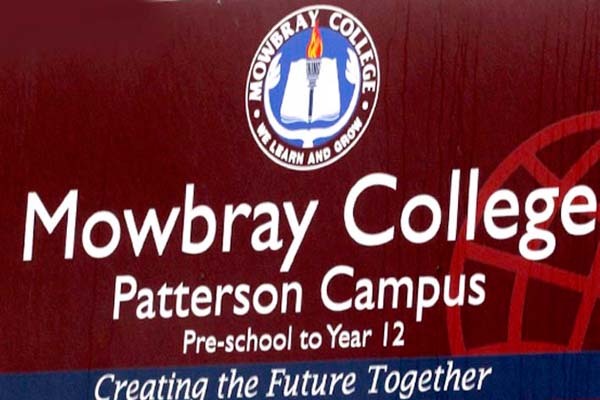THE board of the debt-ridden Mowbray College could be sued if an investigation reveals the school was trading while insolvent. The administrator of Mowbray College, which closed yesterday after accruing $18 million in debt, warned the board members would ”be accountable in some way”.
”You can’t operate a company if it’s insolvent and I will be looking at whether that’s been the case,” administrator Jim Downey said.
The Age can reveal an investigation by the Victorian Registration and Qualifications Authority, which registers schools, found Mowbray did not meet its governance and financial management standards.
Director Lynn Glover said the review, which began on March 2, was triggered by the high turnover of principals and board directors and the impact this could have on governance, financial management and educational outcomes. ”The VRQA’s findings have been provided to the administrator,” she said.
Mr Downey was scathing about the financial acumen of the board.
”You would think you would have experienced administrators on boards,” he said. ”I think what we’ve had here is a bunch of parents, I called them well-meaning amateurs and I mean it. I just think they were totally out of their depth. They were caught in the headlights and they didn’t know whether to go forwards, backwards or what.”
Mr Downey said despite suggestions a financial ”white knight” could save the college, the decision to close could not be reversed. It will remain open to VCE students and those studying the International Baccalaureate until the end of the term.
”If there was any possibility that Mowbray College could continue to operate in any form in 2012 then I would be pursuing it,” he said.
Mr Downey said the school had staff salaries of $500,000 a fortnight, which ”looks pretty high” given shrinking enrolments, and $1 million a year in transport costs.
Barrister John Wallace, who resigned from the board five weeks ago, said he saw no evidence whatsoever the college was trading while insolvent while he was a director.
”Among other reasons the bank advanced more money to pay creditors,” Mr Wallace said. ”As far as I knew the tax office, superannuation fund and other creditors were being paid within reasonable time. I can’t speak for after I left.”
However Mr Wallace said he wouldn’t quibble with Mr Downey’s view the board was run by well-meaning amateurs. ”In any given year there were no more than two to three directors with genuine business experience who were capable of managing the school effectively.
”Ninety per cent of them were lovely people, hard working, but as Jim says, out of their depth.”







